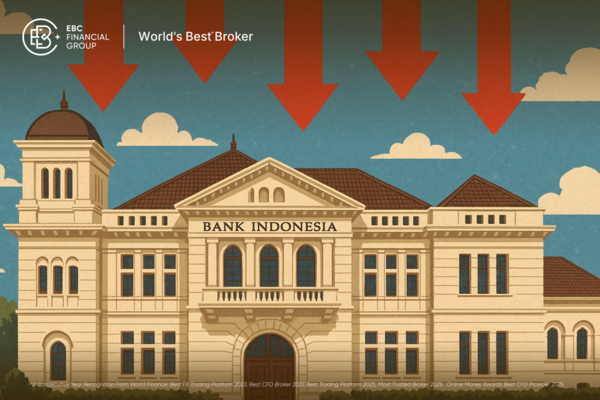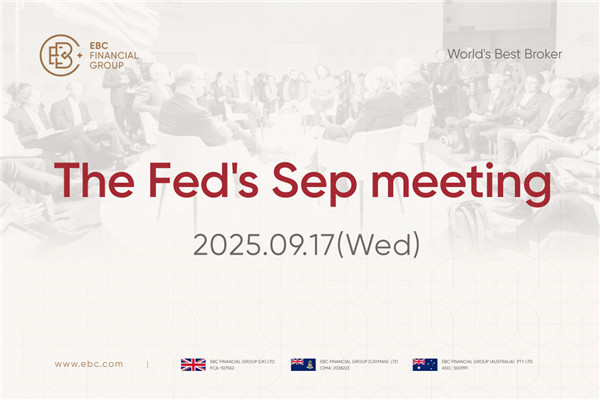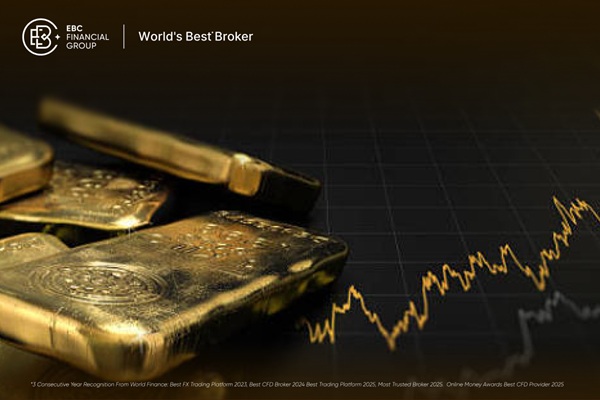As a trader, are you aiming to achieve investment returns similar to those of hedge funds?
Surprisingly, this might be more attainable than you think.
Despite managing billions of dollars, hedge funds rely on widely recognized trading strategies designed to mitigate overall market risk and enhance trading performance.
EBC Finance has compiled some of the key techniques employed by hedge funds to outperform the market. You can opt to explore strategies that align with your trading style.
What are Hedge Funds and How Do They Trade?

The name hedge fund originated from the first hedge fund in the 1940s to attempt to hedge long positions in stocks with short positions (also known as long short strategies).
Hedge fund institutions use pooled funds collected from investors to invest in various financial markets.
They use many different trading strategies to improve their performance and investor returns. Usually, hedge funds are only open to high net worth individuals and professional investors because their supervision is not as good as other types of funds such as mutual funds.
Leveraged trading can significantly improve hedge fund returns as long as the potential investment return exceeds the cost of borrowing funds. Unfortunately, as leverage is a double-edged sword, it can also increase potential losses. Since the 2008 financial crisis, many hedge funds have ceased operations.
Hedge funds typically require investors to keep their funds for a specific period of time, usually for at least one year. During this period, investors are unable to withdraw funds. This is called the lock-in period.
Even after that period, many hedge funds have certain withdrawal restrictions aimed at increasing their liquidity and typically only allow withdrawals within specific time periods, such as every two years or every quarter.
It is important to note that hedging refers to a technique for reducing market risk, but the goal of most hedge funds is to outperform the market.
How do Hedge Funds Operate?
Hedge funds have certain characteristics that distinguish them from other funds, such as mutual funds. We have listed some of the most important features below.

Hedge funds are known for their diverse investment portfolios, spanning across various financial markets. Unlike mutual funds, which are typically restricted to bonds and stocks, hedge funds have the flexibility to invest in a wide array of assets, including real estate, commodities, and foreign exchange.
Investing in hedge funds is limited to qualified investors, a measure put in place by regulatory authorities to safeguard individuals who may lack the experience or understanding of the risks involved. Generally, only high net worth individuals with incomes surpassing $200,000 or assets exceeding $1 million (excluding their primary residence) in the past two years are eligible to invest in these funds.
The "two and twenty" fee structure is a common practice among hedge funds, entailing a 2% asset management fee along with a $20 performance fee. This fee model allows hedge funds to charge both a fixed percentage of the assets under management and a performance-based fee, aligning their interests with those of investors.
Leveraged trading is another hallmark of hedge fund strategies. By utilizing leverage, hedge funds aim to enhance their trading outcomes. However, while leverage can amplify gains, it also magnifies losses, making risk management crucial in hedge fund operations.
Hedge Fund Type
There are various types of hedge funds, each attempting to exploit certain market conditions and trading opportunities. They usually classify based on investment strategies used in trading markets.

According to this classification, the main types of hedge funds include:
1. Long Short Fund
Long short funds are the main and traditional types of hedge funds. The goal of long short funds is to long those Securities that outperform the market and short those securities that underperform the market. After the establishment of long short funds, other types of hedge funds also emerged, and these funds were also aimed at utilizing other investment strategies.
2. Event driven funds
As the name suggests, event driven funds attempt to leverage various market events that affect securities prices, such as political developments, natural disasters, macroeconomic announcements, etc.
3. Macro funds
Macro funds are another popular hedge fund aimed at profiting from price fluctuations caused by macroeconomic events. This type of fund invests in multiple different financial markets, such as stocks, bonds, and commodities, to reduce market risk and improve overall performance.
4. Emerging market funds
Emerging market funds invest in securities of developing countries with lower per capita income. Due to the high volatility of emerging market economies, these funds typically have relatively high risks, but their returns may also be high.
5. Fixed income arbitrage fund
Fixed income arbitrage funds try to take advantage of price differences between fixed income securities, such as bonds, treasury bond bonds or commercial paper. Due to the fact that these securities can be traded on different exchanges, fixed income arbitrage funds attempt to purchase them at a lower price in one transaction and sell them at a higher price in another transaction.
Main Hedge Fund Technologies
It has been proven that many hedge funds outperform the S&P 500 index to a large extent. So how do they consistently achieve such high returns?

Hedge funds use various technologies to improve performance, such as leveraged trading, as mentioned above. However, there are other technologies that may also come in handy for smaller retail traders. We have listed some of them below.
1. Use derivatives. Hedge funds often utilize financial derivative contracts such as options, forwards, and futures. Options are usually traded at a small portion of the original instrument price and are a good way to reduce certain market risks (hedging) relative to other open positions. Similarly, forwards and futures are commonly used to speculate on the future prices of certain financial instruments.
2. Long short trading strategy. Retail traders can also benefit from the long short investment strategies of classic hedge funds. Purchase financial instruments that are on an upward trend and short financial instruments that are on a downward trend. In this way, you will be able to create a market neutral investment portfolio with high potential returns.
3. Create a trading combination. When it comes to investment portfolios, many retail traders do not understand the importance of creating trading portfolios with different correlations. Ordinary retail traders have two to three open trades at a time, or no trades at all. On the other hand, professional hedge fund traders will attempt to create an investment portfolio consisting of 12-20 selected trades, reducing market risk through correlation.
4. Don't overuse your trading. Although many hedge funds use leverage to improve performance, they still know that excessive leverage trading is a safe way to lead to disasters. Hedge funds do not use 100:1, 200:1 or 400:1 extremely high leverage ratio, and you should not use such a high leverage ratio.
5. Conduct analysis. Hedge fund managers do not trade based on emotions. Each transaction undergoes extensive analysis, sometimes even preparing several months in advance. Although retail traders do not have resources available for hedge funds, they can still practice patience, learn, and analyze the market as long as they have the time.
6. Manage your exit points. Although many retail traders have relatively high success rates, some still suffer losses in the market. Hedge funds reduce losses and boost profits. They know in advance when to exit the transaction at the highest profit.
Hedge funds seek tradable opportunities by applying strict investment strategies, capital and risk management rules, and extensively analyzing the market.
Although retail traders lack the resources of hedge funds, they can still utilize certain hedge fund technologies, such as long short strategies, event driven trading, wise use of leverage, and management of exit points.
You won't achieve the type of return that world-renowned hedge funds receive overnight, but you can still significantly improve your trading performance by following some of the key points mentioned above.























